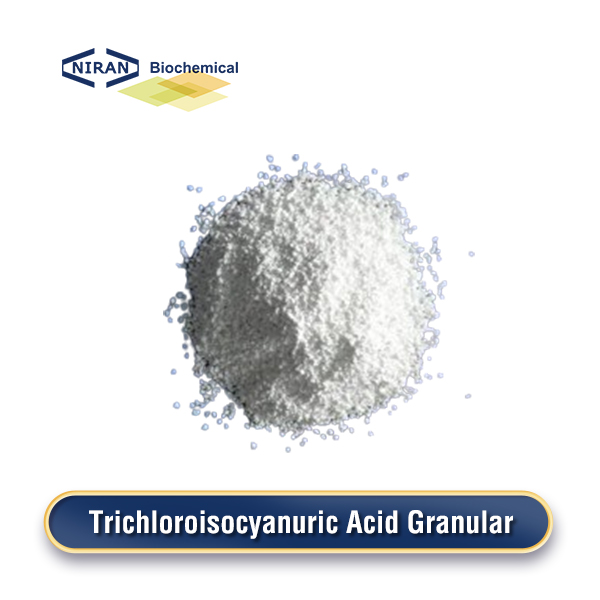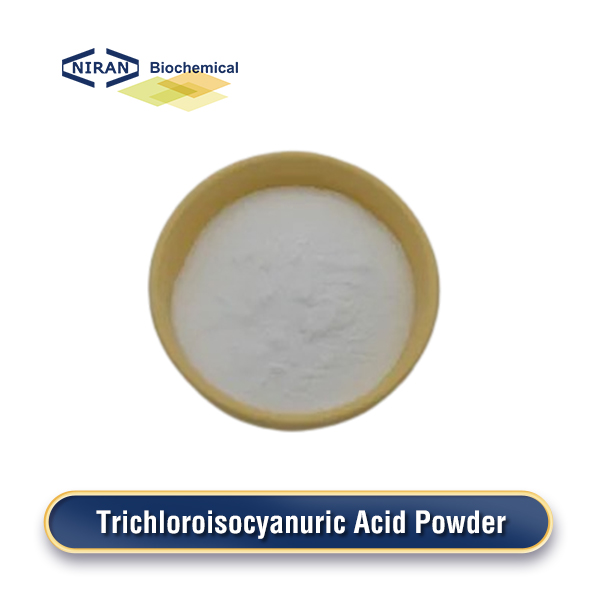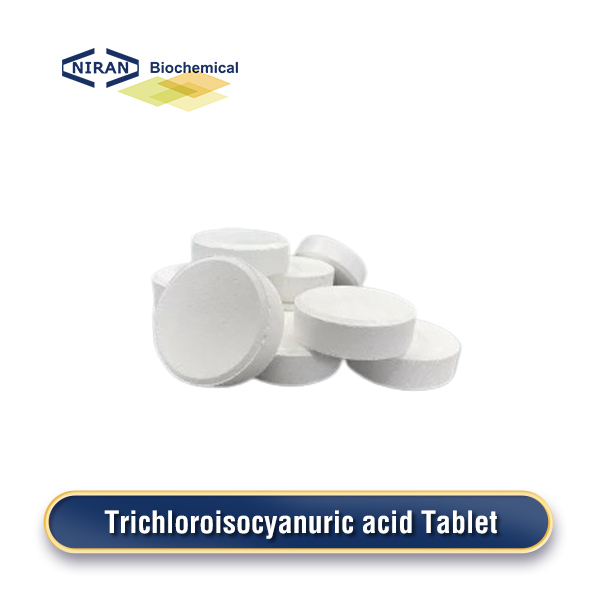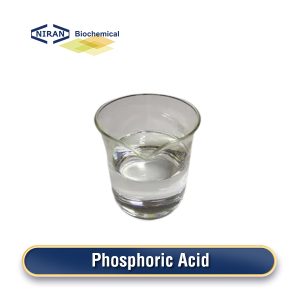Trichloroisocyanuric Acid
- CAS Number: 87-90-1
- Chemical Formula: C3Cl3N3O3
- MOQ: 1000KG
- Shelf Life: 2 years
- Types: Tablet, Powder, Granular
- Synonyms: Trichloro-s-triazinetrione, TCCA, Symclosene
Product Description
What Is Trichloroisocyanuric Acid?
Trichloroisocyanuric Acid (TCCA), a chlorine-based compound, serves as an effective disinfectant, bactericide, and fungicide. It is primarily used in water treatment, pool sanitation, and industrial cleaning for its effective chlorine release and long-lasting antimicrobial action. TCCA contains chlorine in a stable form, which is slowly released over time, providing long-lasting antimicrobial action.
Preparation Method:
Trichloroisocyanuric acid is typically synthesized by chlorinating cyanuric acid (C3H3N3O3) in the presence of chlorine gas. The reaction takes place in an aqueous medium, where cyanuric acid is treated with chlorine gas under controlled conditions, resulting in the formation of trichloroisocyanuric acid. The product is then purified, dried, and processed into tablets, powder, or granular forms for various applications.
Related Parameters:
| Items | Standards |
| Active Chlorine Content | 60-70% (w/w) |
| Moisture Content | ≤ 5% |
| pH | 2.0-4.0 |
| Solubility in Water | ≥ 99% |
| Purity | ≥ 95% |
| Heavy Metal Content | ≤ 10 ppm |
| Granule Size | 1-4 mm (if in granular form) |
Recommended Dosage of Trichloroisocyanuric Acid:
| Applications | Dosage |
| Water Treatment | 1-5 mg/L |
| Swimming Pool Sanitation | 1-3 g per 1,000 liters of water |
| Industrial Cleaning | 10-50 g/L (depending on application) |
| Textile Industry | 0.1-0.5% solution |
| Aquaculture | 0.5-1 g/L |
Trichloroisocyanuric Acid Has Wide Range of Uses:
- Water Treatment: TCCA is extensively used in municipal and industrial water treatment for disinfection, helping to kill bacteria, viruses, and other pathogens.
- Swimming Pool Sanitation: It is frequently used in pool water to ensure appropriate chlorine levels and inhibit the growth of algae.
- Industrial Cleaning: TCCA serves as a disinfectant in industrial cleaning processes, including sanitation in food processing, hospitals, and public spaces.
- Textile Industry: It is utilized in the bleaching and disinfection processes of textiles, playing a crucial role during the processing stages.
- Aquaculture: TCCA helps in controlling bacterial and algal growth in aquaculture systems.
User Asked Question:
Q: How does Trichloroisocyanuric Acid (TCCA) compare to other disinfectants like Sodium Hypochlorite and Calcium Hypochlorite?
A: TCCA, Sodium Hypochlorite, and Calcium Hypochlorite are all chlorine-based disinfectants, but they differ in their stability, form, and application. TCCA is a solid and highly stable compound, offering slow-release chlorine, making it ideal for long-term disinfection, especially in water treatment and swimming pools. Sodium Hypochlorite, on the other hand, is a liquid with a shorter shelf life and is typically used for quick disinfection in household and surface cleaning. Calcium Hypochlorite is similar to TCCA but more reactive and often used in pool sanitation and water treatment. TCCA generally provides a longer-lasting effect with less frequent reapplication needed.






